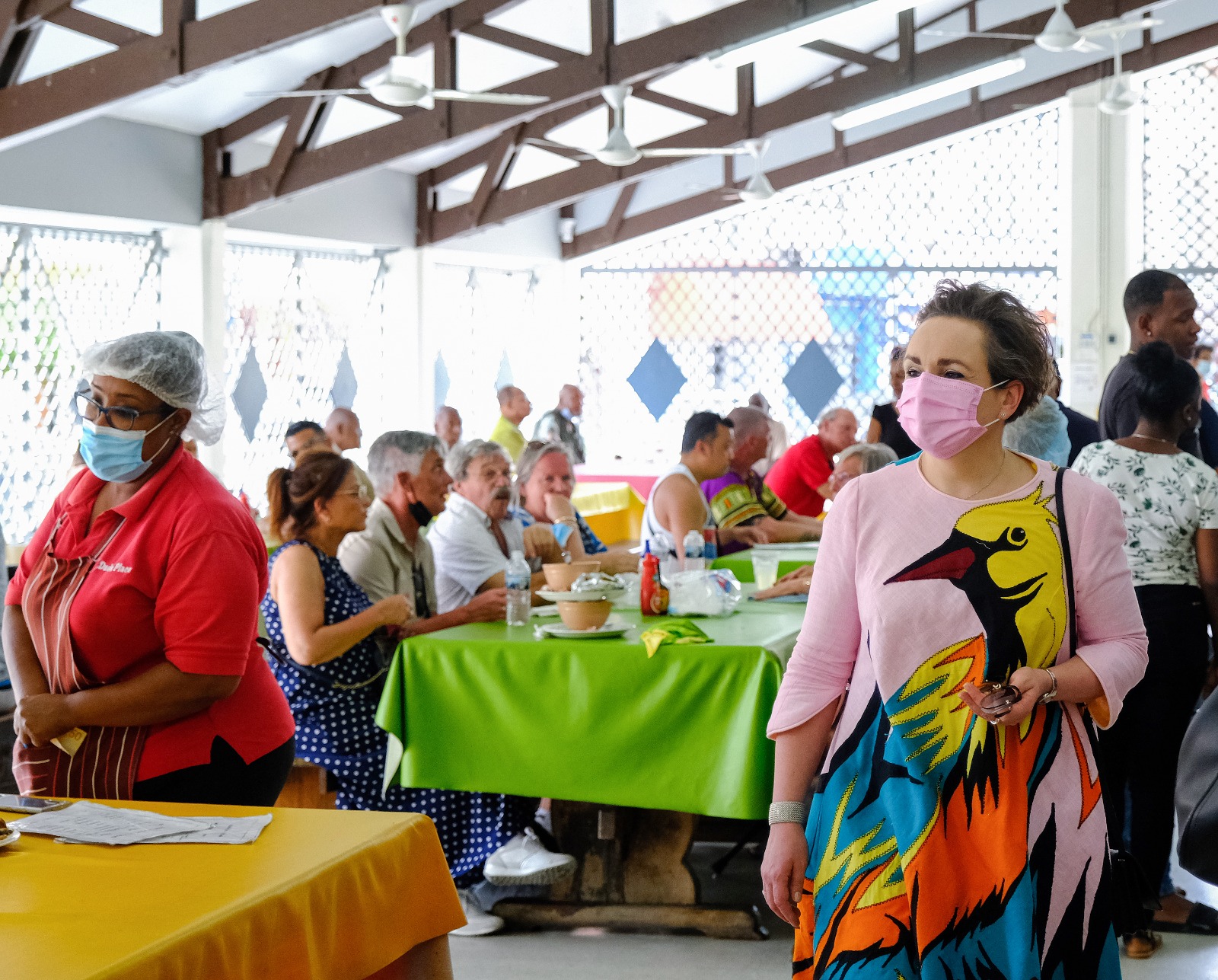State secretary hammers on need for building a strong foundation

THE HAGUE — While the three BES-islands (Statia, Saba and Bonaire) receive millions from the Dutch government, the autonomous countries St. Maarten. Aruba and Curacao have to make do with observations from State Secretary Alexandra van Huffelen (Kingdom Relations) about their well-known problems and about their responsibilities based on their autonomous status. This appears from a letter Van Huffelen sent to the Dutch parliament after her recent visit to the Caribbean.
In St. Maarten (and in Curacao and Aruba) Van Huffelen encountered “a combination of resilience, opportunities and serious concerns about daily life.” She notes in her letter that a solid foundation for handling the next crisis is lacking. The administrative and executive capabilities of the administration are too limited, while policy development, legislation, enforcement and sustainable public finances are inadequate. The challenges the islands are facing can be summed up in five words: poverty, education, economy, nature and climate.
Van Huffelen does not provide an assessment of each individual country. Instead, she notes that the three countries are facing “serious problems” and that undermining criminality is “a threat to the constitutional state and to society.”
The problems of Curacao, Aruba and St. Maarten are complex, Van Huffelen writes, “because the foundation of the countries is not in order. You cannot build a house on a foundation that is not solid enough.”
Among the problems the governments face are inefficient work processes and inadequate personnel management. The debt quote does not help either: due to the COVID-pandemic (and to the hurricanes that hit St. Maarten) the GDP to debt ratios have gone more or less through the roof. Aruba’s debt quote has shot up to 114 percent, Curacao is looking at 90 percent and St. Maarten at 73 percent.
From an economic point of view, things are looking modestly up for St. Maarten, According to IMF-estimates the economy grew by 4 percent in 2021, while the projected growth for this year is 15 percent. Tax revenue remains in the doldrums, reason for Van Huffelen to observe that “a simplified tax system with few exceptions could contribute to higher compliance.”
Van Huffelen furthermore notes that many people she spoke with expressed concerns about good governance and integrity.
For ordinary citizens however, unemployment and their livelihood are the main concerns. To tackle these issues, Van Huffelen writes, requires a better quality of education. “There is no constant quality of school management and teachers and the quality of teaching methods and educational materials are lagging.” To add insult to injury, English-language education in St. Maarten does not connect well with Dutch-language higher education in the Netherlands. “Many youngsters do not return after their studies in the Netherlands or the United States.”
Van Huffelen emphasized that autonomy and the countries’ own responsibilities come first. There is however a need for strengthening the foundation and that requires involvement of the Netherlands. “A strong foundation is the bases for the own autonomy. The execution of the country packages is therefore seen as a necessity,” the state secretary writes.
At the same time she expresses concerns about the increasing costs of healthcare – caused by factors like an ageing population, obesity and diabetes. “The increasing costs are not or insufficiently tackled.”
Van Huffelen states that building a better mutual understanding and trust is her priority for the coming period, “with respect for the autonomy of the countries and understanding for the responsibilities that belong to that autonomy. This means that we can only help if the countries share this objective and take their responsibility. If you work together, you always also give up a part of your autonomy.”
The state secretary returns in her letter several times to the need for building a strong foundation. “The countries will have to build a solid foundation during the next couple of years. This is an enormous challenge. The ministers in the countries will have to show commitment, vigor and leadership. They will have to make choices that will be at times difficult and drastic, for instance because they go against vested interests.”
The government has agreed to make Dutch subsidy and guarantee regulations available for the whole kingdom. Among them are the guarantee regulation of the National Service for Entrepreneurial Netherlands (RVO), the National Growth Fund and the regulation for the production of sustainable energy (SDE++). Van Huffelen also wants to assist the countries with the use of European subsidy programs.
###
Related links:
BES-islands get millions from the Netherlands
Letter Dutch State Secretary Van Huffelen to Second Chamber
St. Maarten must amend ordinance top salaries


























